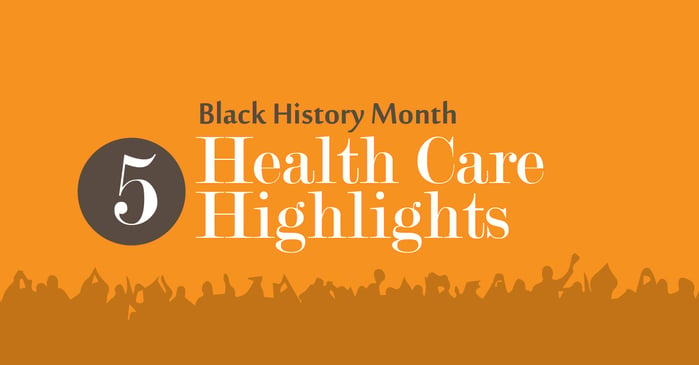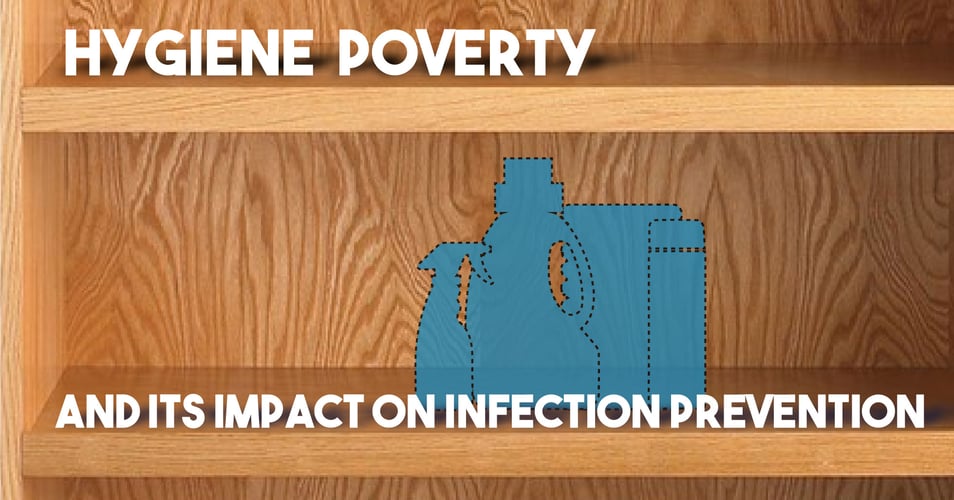Editor's Note: This post was originally published in February 2017 and has been updated for freshness, accuracy and comprehensiveness.
Black History Month: 5 Health Care Highlights

Erica Mitchell
5
min. read
 The history of African-Americans health care is replete with stories of both tragedy and triumph. From the horrific conditions of slavery, through the centuries leading to the Civil Rights Era, to today's freedoms and hopes, our nation has been formed and transformed by our shared experiences. Today's post shares just a few of those experiences that focus on health care. Join us as we explore how extraordinary challenges and obstacles impacted both access to health care and opportunity in health care professions, and how the work continues today to achieve equality.
The history of African-Americans health care is replete with stories of both tragedy and triumph. From the horrific conditions of slavery, through the centuries leading to the Civil Rights Era, to today's freedoms and hopes, our nation has been formed and transformed by our shared experiences. Today's post shares just a few of those experiences that focus on health care. Join us as we explore how extraordinary challenges and obstacles impacted both access to health care and opportunity in health care professions, and how the work continues today to achieve equality.#1 An Enslaved Man Brought the Science of Vaccines to the Early Colonies
In the early 1700s, a man named Onesimus was born in Africa and brought to the Massachusetts colony, where he was sold to a theologian named Cotton Mather (a man with his own interesting history). Despite his status as an enslaved person and his utter lack of freedom in his new home, Onesimus shared scientific knowledge of inoculation from his home in Africa with Mather, who used those practices to protect Boston from a major outbreak of smallpox. In a letter written to the Royal Society of London, Mather describes learning the method from "my Negro-Man Onesimus, who is a pretty Intelligent Fellow,"... describing how Onesimus had described to him in great detail how in Africa he had "undergone an Operation, which had given him something of the Small-Pox, and would forever preserve him from it", adding that it "was often used among [Africans] and whoever had the Courage to use it, was forever free from the Fear of Contagion. He descried the Operation to me, and showed me in his Arm the Scar." Despite significant opposition, Mather and a local doctor would inoculate hundreds of Bostonians, saving their lives thanks to a practice derided as "primitive." Onesimus' knowledge - and willingness to share that knowledge with those who enslaved him - saved countless lives in future epidemics, as the practice spread around the colonies and served as the only protection until Edward Jenner invented the vaccine in 1796.
#2 First Medical Degree Earned by an African-American Was Awarded By The University of Scotland
James McCune Smith was born in New York City in 1813, the son of a woman who was a slave. His freedom at birth came thanks to the state's "gradual abolition" policy that enabled children of slaves to be "born free," allowing young James to attend the New York African Free School (albeit a segregated school). His exceptional abilities were recognized early in life, so James received tutoring and advanced coursework, preparing him for success in college and beyond. His applications to American universities, however, were denied due to racial discrimination. Thanks to more progressive thinking in other parts of the world, Smith was accepted at the University of Glasgow in Scotland, where he graduated at the top of his class. Dr. Smith earned his bachelor's, master's and medical degrees at the University, and completed his internship at a hospital in Paris.
Upon his return to the United States, he became the first African-American to publish medical research in a scientific journal, but was denied membership to the American Medical Association based on his race. He was able to establish his own practice, but in 1846 chose to become the doctor for the Colored Orphan Asylum, where he took care of both the health and the education of over 1000 children, saving them from measles and smallpox outbreaks through vaccination and from rioting and fires due to civil unrest. Dr. Smith spent his life working not only to improve health care for African-Americans, but also for their freedom, working as an abolitionist for most of his life. Much of his writing was focused on disproving the pseudo-scientific belief about the differences in races, using statistical and medical data to demonstrate equality.
#3 Inequality in Health Care Continued for Centuries
Even after the abolition of slavery, access to health care by African-Americans was extremely limited. Segregated health care facilities meant African-Americans did not have the same resources as other Americans, and many did not even have a facility close to them that would provide them with care. There were a few hospitals created and administered by African-Americans, and a few hospitals that served African-Americans in segregated wards (usually in remote and unhealthy locations such as unheated attics or damp basements), but not even close to enough to serve those in need. Until the Civil Rights Era of the 1950s and 60s, over 200 years into our nation's history, African-Americans did not have the right to access quality health care or the legal grounds to demand it.
#4 The 1963 Simkins v. Moses H. Cone Hospital Case Would End Health Care Segregation
The Civil Rights Era represents two decades of social upheaval that upturned the "separate but equal" myth and ended segregation. First, school segregation was deemed unconstitutional in the Brown v. Board of Education case of 1954. Almost ten years later, the Simkins v. Moses H. Cone Hospital case accomplished the same ruling for federally-funded hospitals, but only in the Fourth District where it was ruled. The 1964 Civil Rights Act then banned discrimination on the basis of race, color, or national origin for any agency (including hospitals) receiving state or federal funding.
#5 Brave Individuals, Groups, and Organizations Continue to Work for Equality in Health Care and Health Professions
Throughout our nation's history, brave individuals have stood up for equal rights and protections for all Americans. Despite social pressures, threats, and even violent responses, these brave Americans paved the way for continued progress towards equality. When African-American doctors were not allowed to join the American Medical Association, a group of ten African-American doctors formed the National Medical Association in 1908, "Conceived in no spirit of racial exclusiveness, fostering no ethnic antagonism, but born of the exigencies of the American environment," the enable "the banding together for mutual cooperation and helpfulness, the men and women of African descent who are legally and honorably engaged in the practice of the cognate professions of medicine, surgery, pharmacy and dentistry."
Together with the National Hospital Association (a hospital version of the NMA), the National Association for the Advancement of Colored People (NAACP) and other supporters, medical schools and internships were opened to African-Americans seeking medical training, and hospitals and clinics were built or renovated in the first part of the 20th century to provide higher quality service to African-American patients. The heroes of the Civil Rights Era would lead to changes in the law, and our contemporary heroes have continued to work towards achieving health equality.
Today, access to medical training, internships, and employment is no longer barred by racial discrimination. While there is an argument to be made for the role race continues to play in access to education, Americans of all races are accepted to medical schools and go on to practice throughout the country. Despite this progress, in 2018 only 5% of physicians identify as African-American, and only 6.2% of 2019 medical school graduates were African-American. There is much work to be done to achieve parity at the doctor's office.
Achieving true health access equality is still an issue of great national concern, one that is no longer based on outright racial discrimination but on economics. Individuals living in poverty have less access to health services: Rural poverty can mean living in a "health desert," with facilities spread over great distances, while urban poverty can mean overcrowded facilities and long wait-times. Overall health of individuals living in poverty is poorer, with higher rates of chronic diseases. Thankfully, the spirit of our ancestors and their willingness to advocate for health access equality continues today.
Sites with more comprehensive resources for further reading:
The National Medical Association
African American History Month (Federal Site)
African-American Firsts: Science & Medicine
![EOScu Logo - Dark - Outlined [07182023]-01](https://blog.eoscu.com/hubfs/Eoscu_June2024/Images/EOScu%20Logo%20-%20Dark%20-%20Outlined%20%5B07182023%5D-01.svg)




